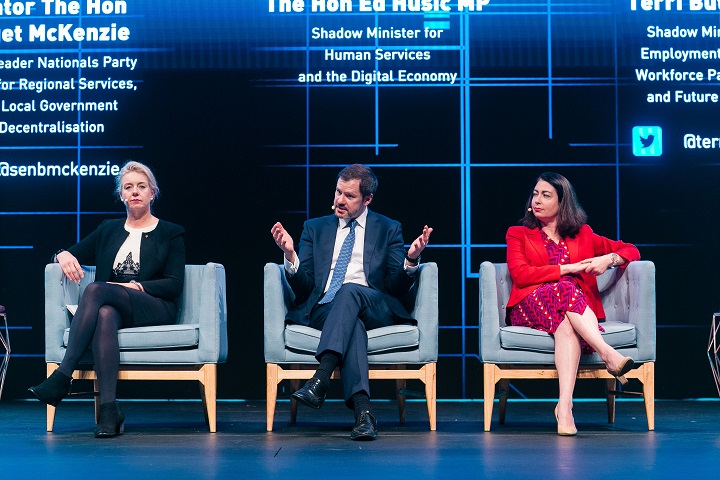Fostering homegrown talent versus attracting global professionals.
It’s a debate that has dominated Australia’s tech industry in recent years, and discussions continued in Melbourne on Thursday as part of the 2018 Reimagination Thought Leaders’ Summit.
“I’d prefer we grow our own,” said Deputy Leader of the Nationals Bridget McKenzie when asked about the importance of attracting global talent.
“That’s why as a government we’ve invested heavily in promoting STEM subjects not just at the end of school life but right at the beginning.”
Despite highlighting the government’s work in growing local talent pools, McKenzie acknowledged that – at least in the short-term – Australian businesses still need access to global markets.
“While that pipeline of skill is continuing, we need to make sure we can access the best and brightest across the world to help us harness the opportunities and overcome the challenges that this fourth industrial revolution is bringing us.
“If we don’t get this right… it will impact on our standard of living.”
ACS Australia’s Digital Pulse 2018 this year warned that Australia needs an extra 100,000 tech workers in the next five years just to keep pace with global markets.

L to R: Deputy Leader of the Nationals, Bridget McKenzie; Shadow Minister for Human Services and the Digital Economy, Ed Husic and Shadow Minister for Employment Services, Workforce Participation and Future of Work, Terri Butler. Source: Kat Stanley Photography
Shadow Minister for Human Services and the Digital Economy, Ed Husic explained that no matter the size of the workforce – Australia needs global workers to enrich its tech space.
“I agree with Bridget [McKenzie], we want to be able to find as many people locally as we can,” he said. “But I’m a very strong believer in this – even if we filled every single one of those 100,000 positions, I’d still want to have people coming in.
“If there is someone doing smart things on the other side of the planet, then we need them here to help lift our knowledge base.
“There needs to be a balance. Yes, we absolutely need to see a definite investment in local capabilities but we should not shut our minds off to the notion that if someone is doing something better somewhere else we’ll refuse them to be here.”
Expect less from youth
Shadow Minister for Employment Services, Workforce Participation and Future of Work, Terri Butler spoke of the relationship between unemployment rates and skills.
Talent shortages in specific industries, such as ICT, represent a structural problem to employment, she explained.
In terms of addressing this “mismatch”, she urged Australian employers to open more opportunities to young professionals.
“We need businesses to step up, particularly big businesses that have more resources to take on more young people without expecting them to be giving economic profit,” Butler said.
“Businesses need to acknowledge that you’re not going to get this ready cohort all the time, people who can just step into the business and start making money from day one.
“Part of the role leaders have is to think of the next generation.”
But for young workers to get into these positions, the right education systems need to be in place.
Ensuring teachers have the right training and resources to teach STEM skills is critical to this.
But Husic reminded the panel that this requires a bipartisan approach.
“Regardless of which government is in power, this is the stuff that should be just rolling along so that it can grow at scale. If one school is doing it, how can we get a hundred?
“This is a different government, a different political cue but frankly I just don’t care at all, I think we just need to focus in a bipartisan way.”




.jpg)





